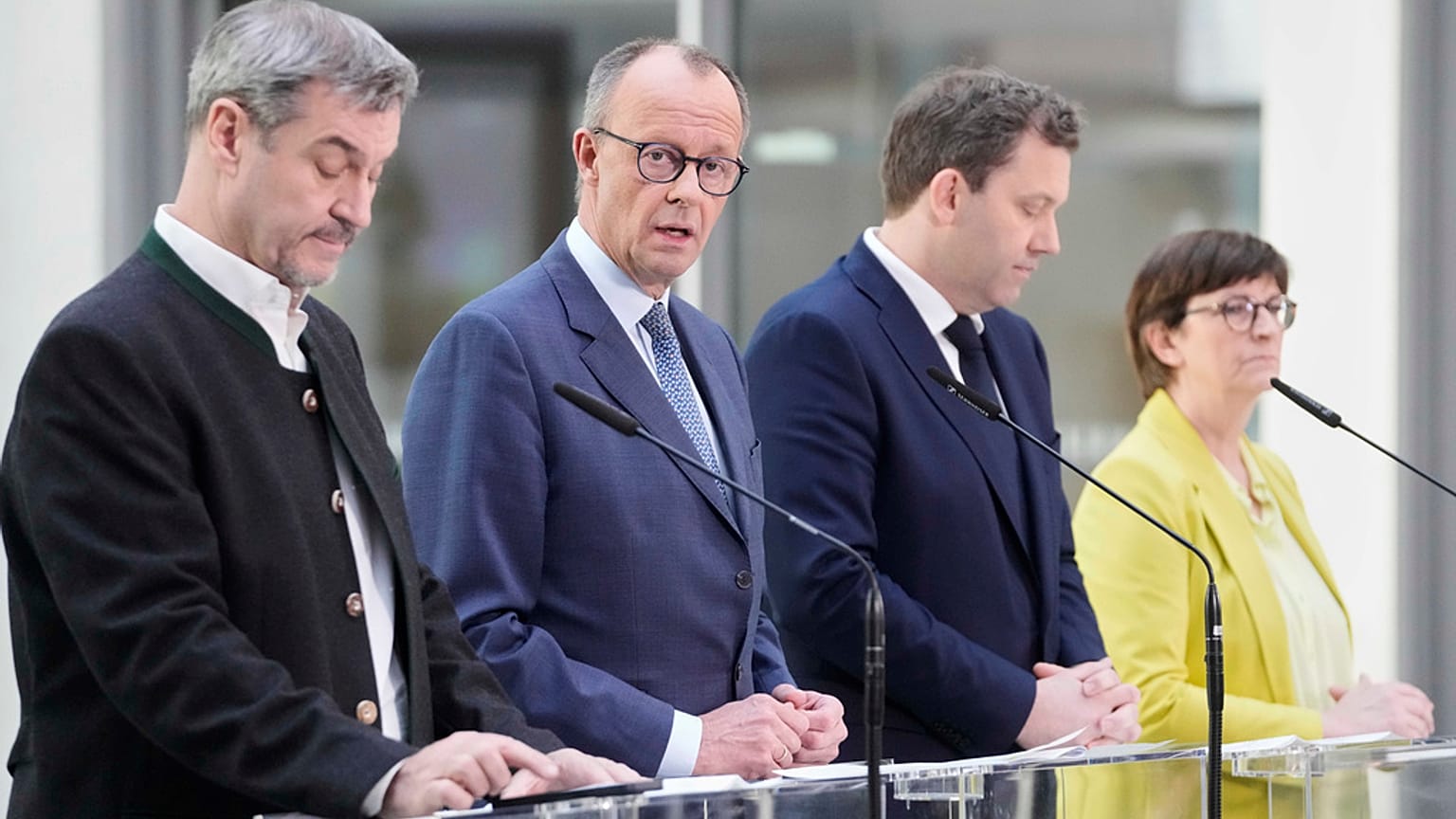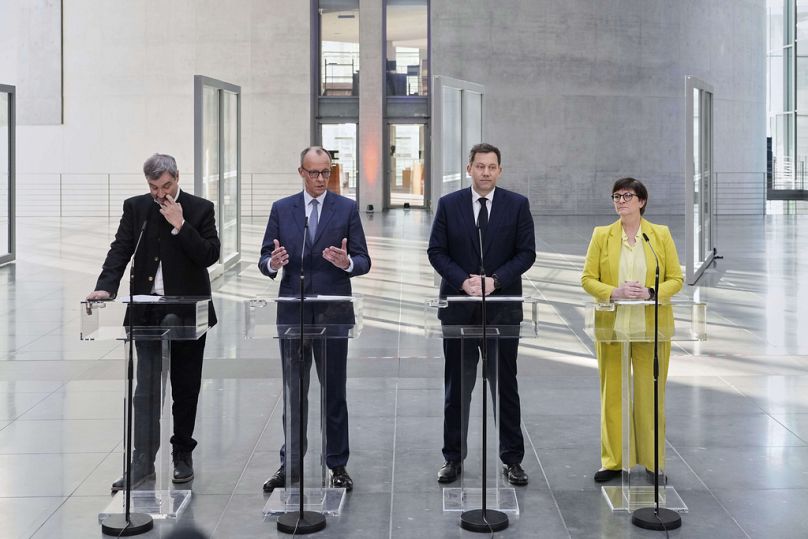According to Friedrich Merz, his conservative CDU/CSU bloc and the Social Democratic Party leaders agreed on common principles on migration and the economy.
Friedrich Merz's conservative party (CDU) has ended the first stage of talks geared towards creating a coalition government with the Social Democrats (SPD), Merz and other party officials said on Saturday.
Both parties want to start talks about forming a coalition government, Merz stated, saying the CDU will on Monday decide on opening the second and final stage of talks.
Coalition governments, a norm in Germany, are usually established in two phases, the first being exploratory talks before formal talks are held.
According to Merz, his conservative CDU/CSU bloc and the Social Democratic Party leaders agreed on common principles on migration, the economy, and industry.
"In coordination with our European neighbours, we will reject people at our shared borders, including asylum seekers," Merz said.
Earlier this week, the prospective partners in Germany’s next government said they will seek to set up a 500 billion euro fund to finance spending on Germany’s failing infrastructure over the next decade to restore Europe's largest economy.
In 2024, Germany's economy contracted for the second straight year as Chinese competition reduced the nation's traditional exports of industrial machinery and automobiles, and worried consumers reduced their spending.
The CDU/SPD coalition wants to put the economy back to a steady growth course. They have also said they will seek to loosen the nation’s rules on running up debt to allow for higher defence spending, an issue of growing urgency as doubts increase about the United States’ commitment to European allies.
Merz reiterated this on Saturday, saying there was an enormous urgency, "especially concerning the Bundeswehr (military) budget."
Merz, the likely incoming German chancellor, hopes to have a coalition in place by April 20. With the US under Trump no longer regarded as a reliable ally, Merz has warned that it was "five minutes to midnight" for Europe to be left on its own against Russia.
However, the CDU/CSU bloc and the SPD need the Greens party's backing in order to pass the proposals.
In-depth discussions will be held with the Greens next week, according to Merz.
















